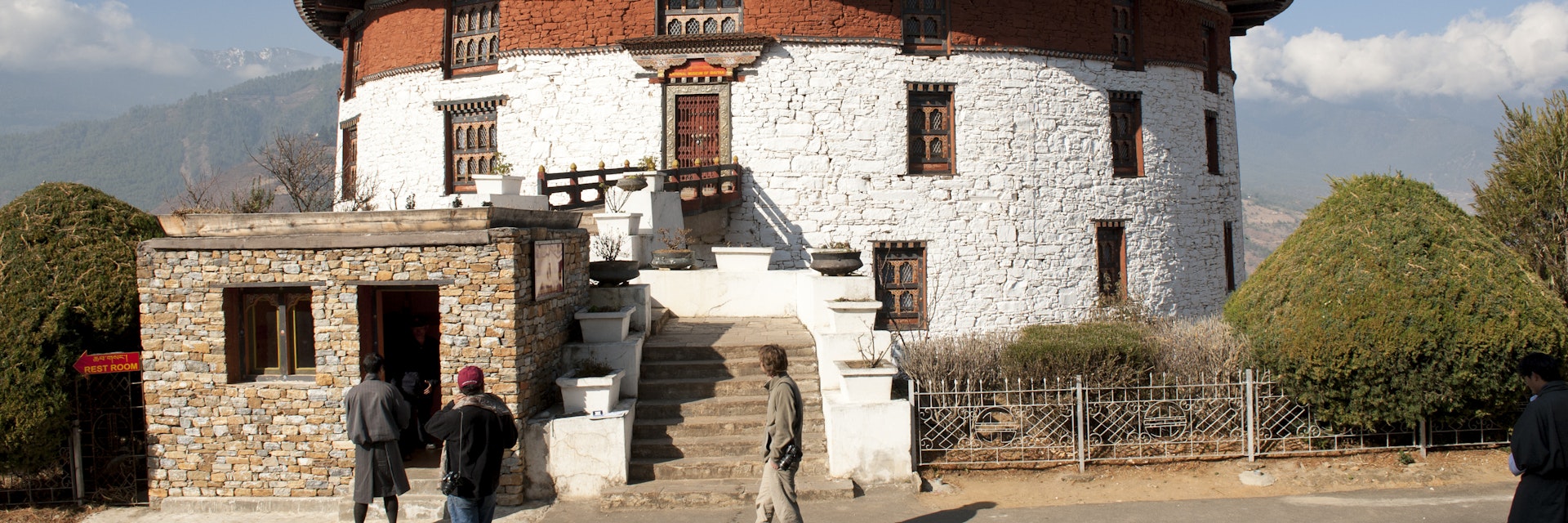Perched above Paro Dzong is its ta dzong (watchtower), built in 1649 to protect the undefended dzong and renovated in 1968 to house the National Museum. The unusual round building is said to be in the shape of a conch shell, with 2.5m-thick walls. The ta dzong suffered damage in the 2011 earthquake but reopened in 2019 as the nation's premier museum.
The 4th-floor entrance kicks off with a description of early history that perfectly illustrates how magic and science are inseparable in Bhutan. Information on Stone Age tools sits next to descriptions of battles between gods and demons. The thangka gallery has displays on the four schools of Tibetan Buddhism (Sakya, Nyingma, Gelug and Drukpa). Next is the Namse Phodrang with its collection of bronze statues, notably of the god of wealth Kubera, and it’s then down to a collection of relics discovered by Bhutan’s treasure finders, featuring 15 links from Thangtong Gyalpo’s original iron bridge at Tamchog.
Go down again to the displays on Bhutanese dress and Bhutan’s ties with Tibet. The 3rd floor has a royal gallery before it’s down once again to the museum's most revered treasures, including a stone egg laid by a mule and a ritual dagger belonging to the protector Dorje Lekpa. An underground tunnel is said to lead from the watchtower to the water supply below.
Cameras are not allowed inside the museum, but you can photograph the ta dzong and surrounding grounds. More exhibits (festival masks, natural history and temporary exhibits) are on display in an adjacent annex. The museum plans to raise entry fees to Nu 200/500 for Indians/foreigners.
Driving to the museum involves a 4km loop into the Dop Shari valley. After visiting, you can walk down a path from the museum to the dzong and back to the town, enjoying good views of the valley and of the Ugyen Pelri Palace. Alternatively, you can start the excellent hike to Zuri Dzong from just above the museum.
